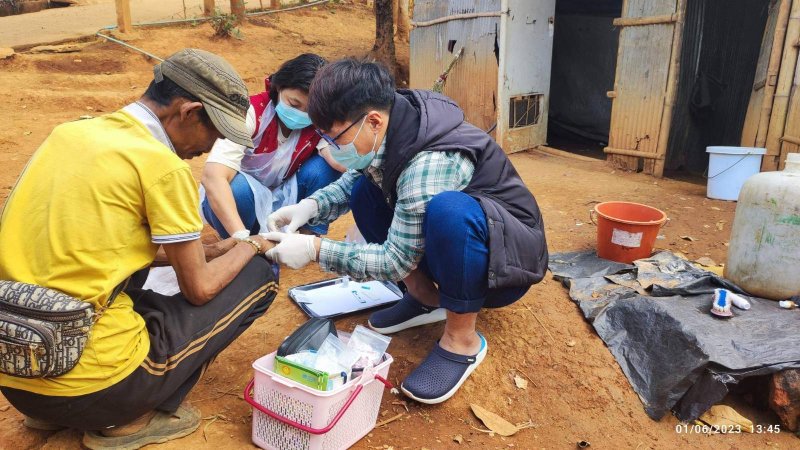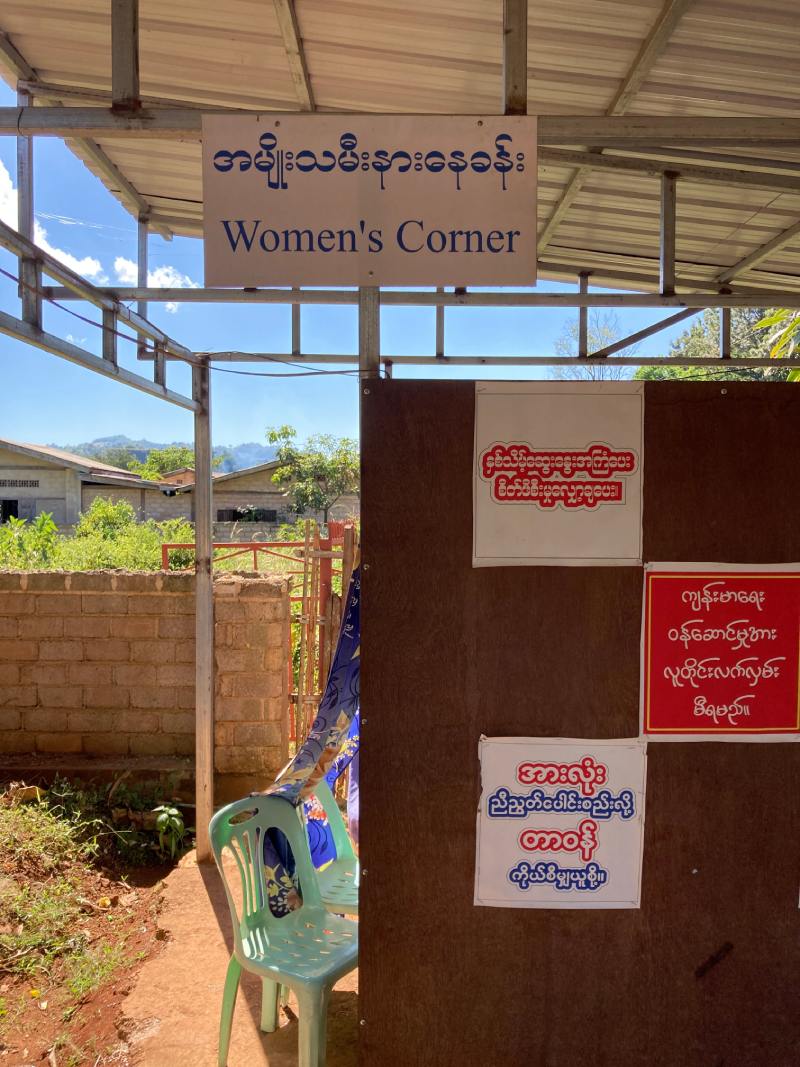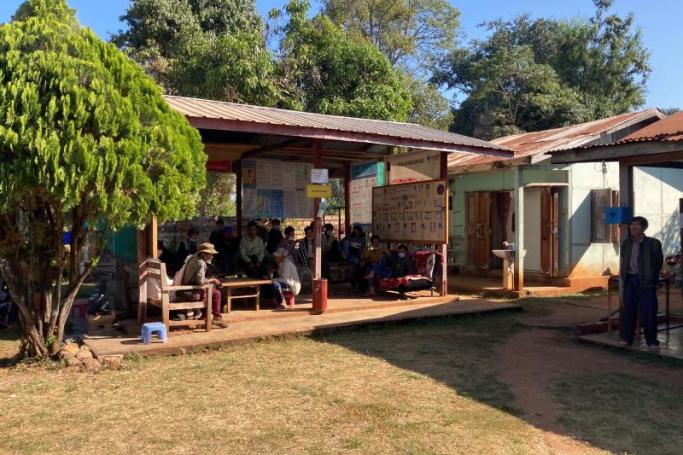As Myanmar marks World AIDS Day on 1 December, the UK government is highlighting the financial support it is providing the country to help prevent HIV and AIDS transmission in the country, and to help with general health services, particularly to the vulnerable.
Friday 1 December is World Aids Day. It is also part of what is called the 16 Days of Activism to End Gender-Based Violence campaign.
The UK has provided £20 million of funding to health services, including preventing HIV, in Myanmar over the past two years.
People who use and inject drugs are at high risk of HIV infection. Working with partners, the UK supports them at drop-in centres and through mobile clinics, where they can receive sterile injecting equipment, access testing and prevention services, and get referred for treatment.
In the first half of 2023, the UK’s partners have reached over 23,000 people with HIV prevention programmes, tested nearly 13,000 people for HIV, and distributed more than 4.6 million sterile needles and syringes to people who inject drugs to reduce HIV infections.
Other services supported under the UK partner’s harm reduction programme include hepatitis B testing and vaccination, hepatitis C testing, condom distribution, health education and referral to oral substitution therapy, and sexual and reproductive health services to people who inject drugs, as well as their intimate partners, children, and the broader community. 
Often poor health, drug use, and domestic violence are intertwined, and victims need a multi-pronged approach.
People who identify as lesbian, gay, bisexual, transgender or queer (LGBTQ) are often particularly vulnerable to domestic violence, and can face health issues.
Take Lin Lin, a transgender woman and domestic violence survivor from Kachin state, whose name we have changed to protect her identity.
Lin Lin’s brother became violent towards her during her gender transition from male to female. Because of the trauma Lin Lin experienced, she attempted to take her own life.
After fleeing her home, Lin Lin had the opportunity to be supported by one of the UK’s partners, where she learnt about gender-based violence, sexual and reproductive health and rights, mental health and psychosocial support.
Lin Lin used this knowledge to help others, and shared safe sex practices and offered awareness and psychosocial support to her peers. She advocated for the use of condoms among sex workers and provided information about available health services.
Today, Lin Lin is not just a survivor of domestic violence, she is also a dedicated advocate committed to helping her peers who are experiencing domestic violence.
“From now on, I'm committed to living my best life and continuing to engage in peer activities. I want to support my LGBTQ peers and break down the stigma surrounding our community. I want to help them avoid the dangerous behaviours that I went through,” Lin Lin said.
Illegal drugs are a problem area. Waing Su, a 42-year-old woman in Shan State, says that following her divorce, she started gambling and using drugs. She started taking heroin in a new relationship and the couple were soon without a stable income and, consequently, homeless.
“We weren’t able to find a job and barely made ends meet by collecting discarded bottles,” Waing Su said.
The couple found support in a UK-funded health drop-in centre, where they could access health services for free. It was here that they were tested for HIV and tuberculosis. The results were positive.
“We felt remorseful and distressed hearing the news. Thankfully, the staff from the organization provided counselling to both of us and referred us to a hospital where we could receive treatment. Now both of us are taking anti-tuberculosis medicine and anti-retroviral treatment regularly,” she said.
Help has been provided for female sex workers and drug users in Kachin and Shan states.
Women who use drugs and female sex workers face significant barriers in accessing health services at mixed-gender clinics and drop-in centres, where they are more vulnerable to stigmatisation and judgement.
One of the UK’s partners has created a comfortable and safe environment for female drug users in both Kachin and Shan state - where drug use is particularly high - by setting up “women's corners” and introducing women hours at drop-in centres, where women can access health information, treatment services for HIV and other sexually transmitted diseases and psychosocial support—provided by women counsellors, outreach workers and youth peers. As a result of this support, HIV testing at the drop-in centre nearly doubled in one year.

"Our space at the women's corner is decorated and neat and tidy, and I feel comfortable talking about personal things. I feel secure," said a woman who attended a health consultation at the women's corner in Kachin State.
As Myanmar marks World AIDS Day, the UK government’s health support provides the vulnerable with needed care and education – all part of a drive to help reduce the threat of HIV and AIDS.












